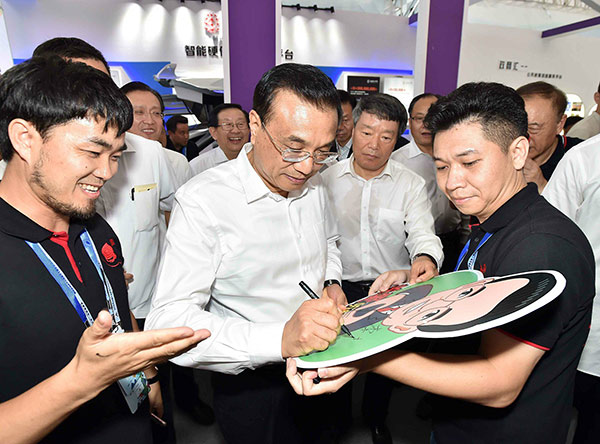In aim to further promote mass entrepreneurship and innovation, China has adopted a guideline at a State Council executive meeting chaired by Premier Li Keqiang on July 12,2017 with a series of detailed measures and policies incentives to deepen its support, which includes the following aspects:
Expansion of financing channels
China plans to encourage State and private investment in business startups, especially those in the high-tech sector, to help finance new business and innovation, while standards and rules will be reformed for government funds and State-owned capital to invest, manage and exit venture capital, with an assessment system set up in line with the new rules. The guideline also encourages local governments to establish venture capital funds with certain management criteria. Commercial banks will be encouraged to establish inclusive financing branches to help small and medium-sized enterprises. Financial devices, such as bonds and equities, will be perfected for technological SMEs to provide full-life-circle services.
Preferential policies for entrepreneurs
More preferential social security and taxation policies are to be rolled out to attract and retain domestic and overseas entrepreneur. The government takes measures to make it easier for foreign entrepreneurs to set up business and live in China. Overseas students in China who start new businesses can also apply for residential permits using their diplomas. According to the Ministry of Human Resource and Social Security of China(MHRSS), people who choose to return to their hometown to set up businesses, including the college graduates, migrant workers, and veterans, can enjoy related preferential policies such as subsidies, targeted services and financing support.
Industrial upgrading through innovation
The government plans to promote industrial upgrading by encouraging colleges and research institutions to work with enterprises to build manufacturing innovation centers. Meanwhile, China will establish national demonstration areas for the "Made in China 2025" plan, to upgrade the country's manufacturing sector. The national demonstration areas will be established in cities and city clusters in the eastern, central and western regions and help speed up the transformation of the country's manufacturing sector, create innovative mechanisms and facilitate opening up and cooperation.
The innovation of governmental management
The government plans to establish an integrated digital business license registry, and combine multiple business licenses into one to further facilitate market entry. Furthermore, all startups will be able to register online, sparing the entrepreneurs the leg work of going to a physical office. The pre-approval of the company name will be cancelled and the enterprise cancellation registration will be largely simplified.
Chinese government is resolved to innovate its policies to further promote fair competition, step up prudent and tolerance oversight, widen market access, improve tax services and create an enabling environment for entrepreneurship and innovation.
